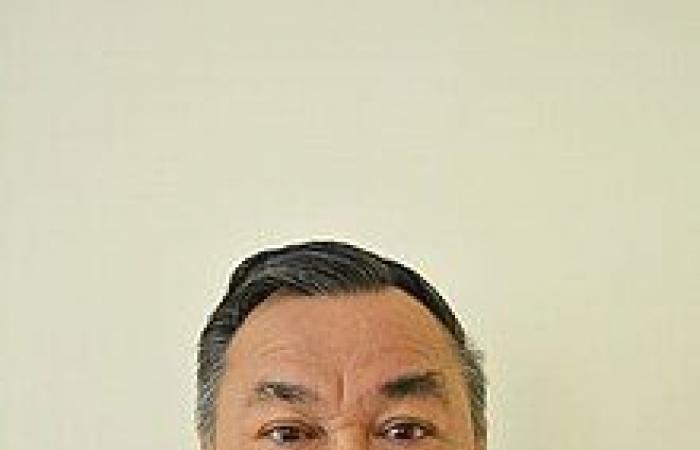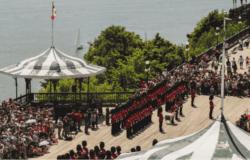-Historically, Indonesia’s relationship with the Kingdom of Morocco dates back to the 12th century, when Moroccan explorer Ibn Battuta, a medieval Muslim traveler and scholar, visited Indonesia, particularly Aceh and Samudera Pasai.
In modern times, the relationship was strengthened by Morocco’s participation in the Bandung Afro-Asian Conference in 1955, which concluded the Bandung Declaration, addressing the fight against colonialism and advocating for the independence of colonized nations, particularly in Asia and Africa. This involvement laid the foundation for diplomatic relations and cooperation between the two countries.
The relationship continued to develop when, in 1960, Indonesian President Soekarno visited Rabat. Thus, ties between Indonesia and Morocco have lasted for 64 years now and continue to strengthen every year in various sectors.
Bilateral cooperation in areas such as the economy, culture and education is expanding, particularly in the field of education. It is essential to maintain the relationship between Indonesia and Morocco and further strengthen it, as Indonesia welcomes Morocco as a great Muslim nation, with both countries agreeing to strengthen their partnership for mutual prosperity at home. future.
-Trade between the two countries reached $170.19 million in 2019. What are the priorities of bilateral economic cooperation and how to exploit the various existing business opportunities?
-This year we celebrate 64 years of diplomatic relations. Our bilateral relations are based on mutual respect and understanding, and the two countries enjoy good trade relations. However, during my tenure as Ambassador of the Republic of Indonesia to the Kingdom of Morocco, I identified several aspects of our bilateral trade relations that need to be strengthened. For example, strengthening bilateral trade by reducing customs duties, eliminating non-tariff barriers and facilitating trade processes through the negotiation and finalization of a preferential trade agreement, which has been undertaken in recent years to boost trade future.
Additionally, the flow of goods between Indonesia and Morocco needs to be increased. Recently, especially with our participation in the SIAM Meknes program and business opportunity meetings led by Indonesian entrepreneurs in Morocco, trade has continued to grow. However, there are still areas for improvement, and both countries should commit to further strengthening our cooperation.
-How could Morocco benefit from the Indonesian experience in attracting foreign direct investment (FDI)?
-Indonesia is open to investors, just like Morocco. Both Morocco and Indonesia have the opportunity to learn from each other and improve side by side to adapt their strategies. The Moroccan government has already provided me with opportunities for Indonesian investors to invest in Morocco, starting with the establishment of a foreign investment office in Morocco.
I will give you an example: many Moroccans may know that Indonesia has an Indomie factory (SAWAMAG) in Tiflet. It achieved favorable results in the Moroccan market, with a massive production of 1 million packets per day. Indomie’s success is due to the investment climate in Morocco. This is also the case in Indonesia, which I think is also very welcoming. However, we still need to improve this.
As far as I know, there are not many Indonesian investors in Morocco, and similarly, there are only a few Moroccan entrepreneurs investing in Indonesia. So few that they can be counted on the fingers of one hand. I would like to emphasize that my country is very open to foreign investors, and we encourage foreign investment by simplifying regulations, while facilitating requirements for foreign investors. This creates a more attractive and competitive investment environment, thereby stimulating economic growth and development.
-Morocco, as a gateway to North Africa and the region, enjoys significant advantages, including its geostrategic position, an asset for Indonesian companies seeking to expand their activities to sub-Saharan African markets?
-We are fully aware of Morocco’s geostrategic advantages. In fact, this has positioned Morocco as a key player in the African region. We are well aware of Morocco’s role in economic development across Africa. Many African countries have also contacted Indonesia for further trade cooperation. This trade relationship was further strengthened in 2018 when Indonesia launched the Indonesia-Africa Forum in Bali to strengthen ties with African nations. Morocco has a developing industrial sector, including the Dacia automobile industry, advances in agriculture and growth in technology. In this regard, Morocco is ahead of other countries in Africa, and Indonesia is very aware of its potential.
-The Kingdom has obtained the status of Sectoral Dialogue Partner with ASEAN, chaired by Indonesia for the year 2023. What can Morocco’s participation be as the first Arab and African country to access this status?
-Last year, Morocco became a Sectoral Dialogue Partner with ASEAN and is the only African country to hold this status with ASEAN member states. This is a very valuable moment, a significant opportunity for Morocco to strengthen its trade and economic relations by opening access to markets and investment opportunities.
Morocco can engage and collaborate with the 10 ASEAN countries, including Indonesia, as a founding member of ASEAN. Indonesia warmly welcomes and encourages Morocco to continue as a sectoral dialogue partner with ASEAN nations. This partnership can position Morocco as a key player in the broader cooperation between Asia and Africa.
-Bilateral cooperation in the field of academic and scientific exchanges is extensive. Morocco offers scholarships to Indonesian students. Indonesia, for its part, grants a significant number of scholarships to Moroccan students. What are your observations on this subject?
-Honestly, Indonesia is grateful because Morocco provides scholarships for Indonesian students. Initially, it started with 15 beneficiaries. Then, His Majesty the King of Morocco later increased this number to 30, and this year, the Moroccan government extended the scholarships to 50 Indonesian students. We greatly appreciate this support. On the other hand, Indonesia also welcomes and offers scholarships, having established various scholarship programs for Moroccan students wishing to study in Indonesia.
Additionally, several Indonesian universities have collaborated and signed memoranda of understanding in the field of education with various Moroccan universities, such as Hassan I University in Settat, as well as other universities in Kenitra, Rabat and Casablanca.
Indonesia regularly invites students from all over the world, including Morocco, to participate in the development of the education and research sector available in various fields of study, namely:
has. The Kemitraan Negara Berkembang (KNB) Scholarship from the Indonesian Ministry of Education, Culture, Research and Technology. This program is offered for bachelor’s, master’s and doctoral degrees at all universities in Indonesia.
b. The non-degree scholarship called Darmasiswa, also provided by the Ministry of Education, Culture, Research and Technology, where students can study Indonesian art and language for one year in Indonesia.
c. The Arts and Cultural Scholarship, a three-month study program in art and culture offered by the Ministry of Foreign Affairs.
-Tourism is one of the important components of the economic activity of your country. How to strengthen bilateral cooperation in the fields of tourism and crafts?
-This area clearly requires improvement. Indonesia has stunning natural landscapes, and Morocco also offers magnificent landscapes. The Kingdom boasts breathtaking natural beauty, offering different experiences in every season, whether winter, summer, the Atlas Mountains near Marrakech, and more.
Both countries have significant tourism potential and opportunities for cooperation. I believe it is essential to facilitate meetings and conduct bilateral discussions between the Indonesian Minister of Tourism and the Moroccan Minister of Tourism. The relationship between the two countries in the field of tourism needs to be strengthened, especially at the government level.
Additionally, I would like to point out that Bali is not the only tourist destination in Indonesia. There are many other notable places, such as Labuan Bajo, Yogyakarta, Lake Toba, and West Sumatra.
-In recent years, the two countries signed an agreement on strengthening cooperation in the fight against terrorism, as well as on the exchange of financial information relating to money laundering and terrorist financing. What lessons do you draw from Morocco’s expertise in this area?
-We note that Morocco has a financial intelligence and anti-money laundering unit called the Financial Intelligence Processing Unit (UTRF), created in 2009, currently called the National Financial Intelligence Authority (ANRF). This authority is responsible for monitoring and preventing money laundering as well as the financing of terrorism.
We see that there is an opportunity to draw strength from this entity by strengthening financial intelligence units to monitor and analyze financial transactions, implementing advanced technologies, and improving coordination between financial institutions and law enforcement. Agencies from both countries may also develop specialized training programs in this area, such as security forces, law enforcement and financial investigation techniques.






